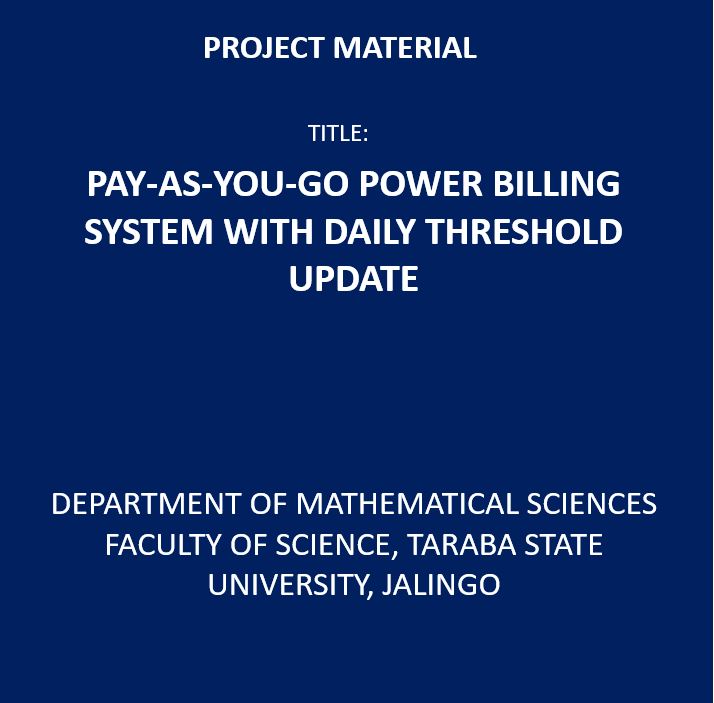No products in the cart.
Pay-As-You-Go Power Billing System with Daily Threshold Update
₦10,150.00
PAY-AS-YOU-GO POWER BILLING SYSTEM WITH DAILY THRESHOLD UPDATE
- PROJECT YEAR: 2021
- NUMBER OF PAGES: 37
- FILE TYPE: DOC
- DEGREE: BACHELOR
- DEPARTMENT: DEPARTMENT OF MATHEMATICAL SCIENCES FACULTY OF SCIENCE, TARABA STATE UNIVERSITY, JALINGO
ABSTRACT
Pay-as-you-go power billing system with daily threshold update is the remote collection of consumption data from customer’s utility meters over telecommunications, radio, power line and other links. It provides water, electric and gas utility − service companies the opportunities to streamline metering, billing and collection activities, increase operational efficiency and improve customer service. Utility company uses technologies that were developed several decades ago with the majority of the meters being read visually. With manual readings, considerable time is used to physically check out each unit. It becomes a viable option to overcome this problem of time wastage to obtain the meter readings. There are many different forms of communication links that can be utilized as the communication medium in proposed system. One such link is the power line carrier or PLC. The advantages of using the PLC as the communication medium are readily apparent since the power line network is the property of the utility company and its infrastructure is already there. However, power lines are never meant for communication and creates much noise and therefore, various modifications has to be made to make the PLC suitable. The power billing system consists of three major components: the meter interface module, communications system, and data concentrator. This paper details a feasibility study on the creation of a robust communication system between an electricity meter and a distant control unit (data concentrator) over the low voltage (LV) distribution. electro-mechanical meters without the need of purchasing new meters. With many existing meters being the electromechanical meters, the need for a high-cost, large-scale implementation of new electronic device meters to enable implementation of the daily threshold and daily update system is unnecessary. The cost of implementation is low and the benefits, especially economically, that it brings to the utility company are immense.
- ₦10,150.00
- ₦1,450.00






